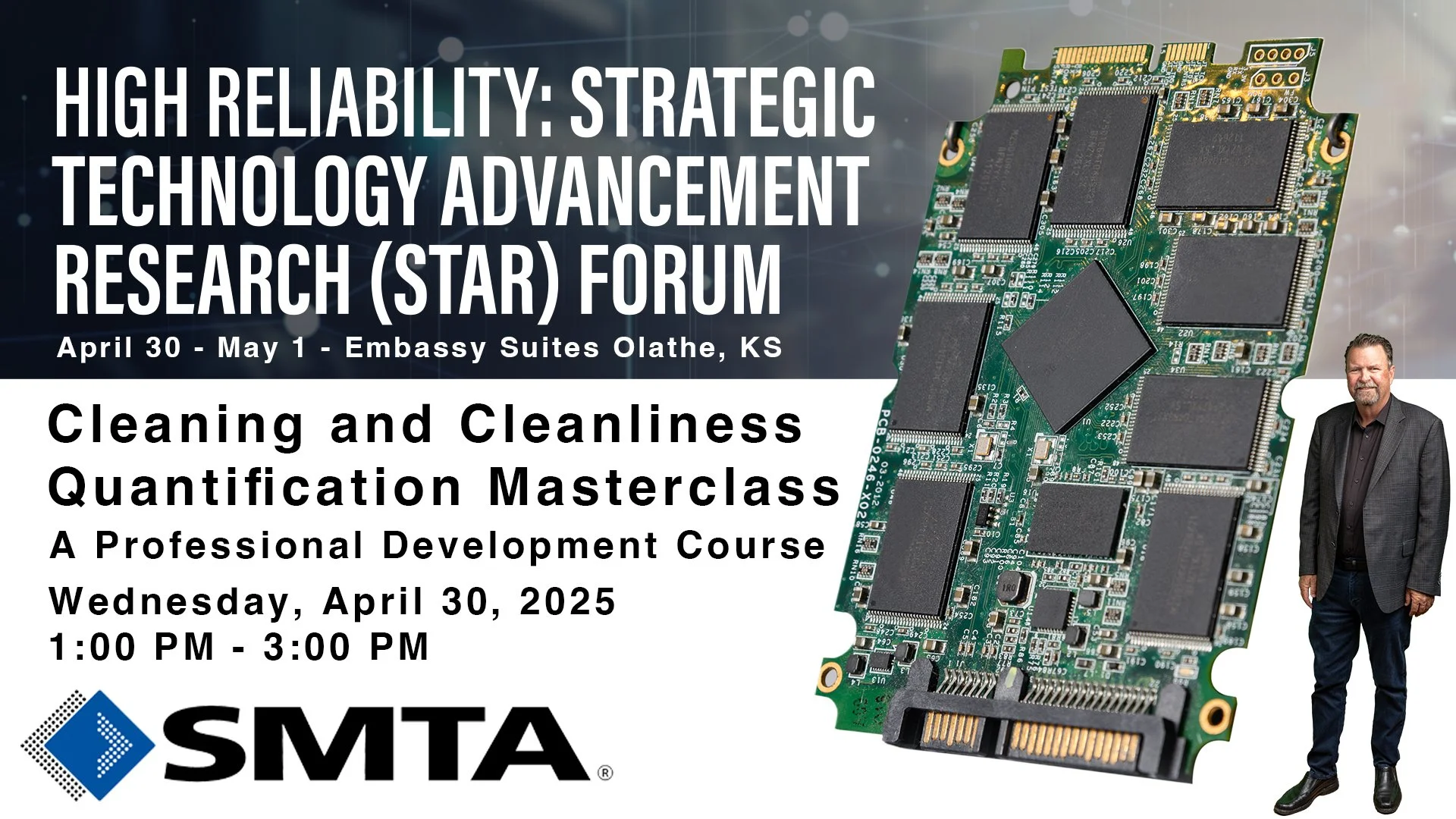Mike Konrad will be the course instructor for the two-hour Cleaning and Cleanliness Quantification Masterclass at the SMTA High Reliability Strategic Technology Advancement Research (STAR) Forum in Olathe Kansas.
Electrochemical migration, ionic contamination, and residue-related failures can jeopardize the integrity of your circuit assemblies. Are you confident your cleaning process is up to the challenge?
The Cleaning and Cleanliness Qualification Masterclass (a Professional Development Course) will transform the way you think about cleaning and reliability in circuit assemblies. Whether you're an engineer, a quality professional, or a technician in the electronics manufacturing industry, this course will give you the tools you need to ensure long-term reliability and compliance with industry standards.
Course Topics
The History of Cleaning – How we got here and why it matters.
Our Contract with No-Clean – Understanding its limitations.
Electrochemical Migration (ECM), what it is and why it’s the silent killer of reliability.
ECM Prevention Strategies – Proactive steps to mitigate risk.
Beyond ECM – Additional reasons for cleaning in today’s environment.
The Relationship Between Harsh Environments and Ionic Contamination and how improper thermal management can create harsh microclimates within the electronic assembly’s enclosure, leading to ECM failures.
Real-life ECM Case Studies – Lessons learned from real failures.
Cleaning Equipment Selection Considerations – Finding the right fit for your application.
Chemical Selection Best Practices and how to optimize for performance, materials compatibility, and safety.
How Clean is Clean (the new IPC-J-STD001-J cleanliness testing and process monitoring requirements).





